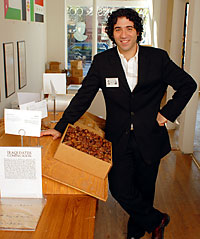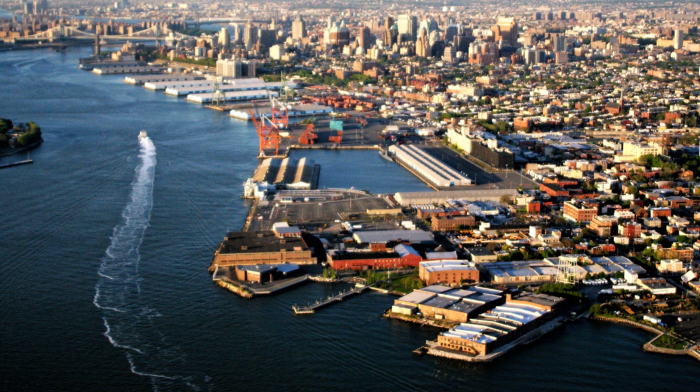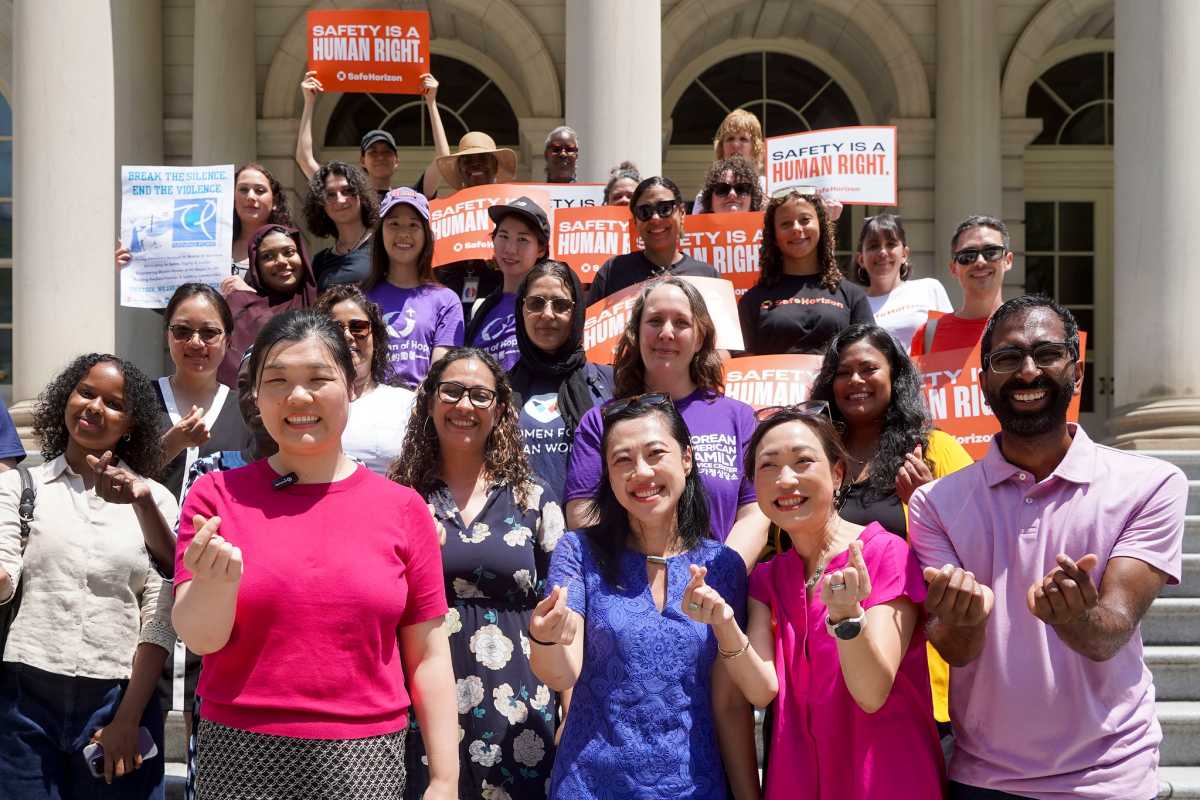Michael Rakowitz’s Iraqi dates have finally completed a 6,000-mile, three-month journey from Baghdad to New York City — but it’s unclear if the fruit will make the last six miles to Rakowitz’s Atlantic Avenue store.
As we went to press, the dates — 11 boxes of Iraqi’s most-beloved treat (after oil, that is) — were tied up at JFK Airport, where American officials are deciding whether to release them to Rakowitz, an artist and would-be date importer.
“The red tape is not unexpected, but I never thought the dates would become part of a counter-terrorism effort,” said Rakowitz, 32, a former Fort Greene resident who set up a storefront on Atlantic Avenue as an art project examining the progress in American-Iraqi relations.
Progress? Rakowitz certainly isn’t hanging any “Mission Accomplished” banners.
His long, strange attempt to import Iraqi dates goes back to Aug. 10, when he made e-contact with Atheer Al Azawi, an exporter who said he could ship a ton of the delicacy to Rakowitz by the beginning of October.
Rakowitz had no reason not to be optimistic. After all, didn’t America go to war to help the Iraqi people build better lives and businesses?
Perhaps, but since that first joyous email exchange, things have gone a bit awry (and yet provides fascinating reading on Rakowitz’s blog, www.creative time.org/programs/archive/2006/whocares /projects_rakowitz_blog.html):
• Sept. 7: Rakowitz’s order for a ton of dates is inked with Al Azawi’s company.
• Sept. 18: Rakowitz received the artwork for his date boxes — stamped with the words “Product of Iraq,” the first time such words would be seen on American shelves in more than two decades, thanks to wars and embargoes.
• Oct. 5: The dates leave Baghdad by truck, headed for Jordan and a flight the U.S.
• Oct. 10: The dates are turned back at the Jordanian border and sent to Baghdad for radiation testing.
• Oct. 18: The truck returns to the Jordanian border, only to be turned back again for “security concerns.” The driver heads to Syria.
• Oct. 25: Syrian officials demand $1,200 to allow the dates to leave Damascus. Al Azawi advises against paying the bribe because “eventually, these large boxes of dates will be blocking something … and they will move [them] as we requested.”
•Nov. 1: Syrian officials indeed release the dates — but the weeks of heat and poor storage have left them in such horrible condition that Al Azawi cancels the shipment out of fear that American inspectors will block it anyway.
•Nov. 7: Eleven new boxes are sent to the United States by air.
•Nov. 17: The dates arrive in the U.S., but are blocked at JFK airport, subject to inspection by the Food and Drug Administration, the Customs bureau, and the federal Department of Agriculture.
•Nov. 21: USDA and Customs inspectors sign off on the dates, which could be shipped to a Sunset Park warehouse (owned by the Sahadi family, which is officially a co-importer) for the final FDA inspection this weekend.
Rakowitz is finally allowing himself to believe that the end is near — and that the dates could go on sale at his store this weekend, a fitting ending to an art project that revealed painful truths about the toll of President Bush’s failed war in Iraq.
“It’s amazing when you think about how this sweet, innocuous fruit, which is actually a symbol of good things to come in both Muslim and Jewish celebrations, got trapped in the barriers that are put up between the two countries in a period of war,” said Rakowitz, whose grandfather, an Arab Jew, came to New York from Iraq in 1946.
“The sanctions were lifted in May, 2003, yet there is virtually no trade between U.S. and Iraq. How can Iraqis not be disillusioned?”

























